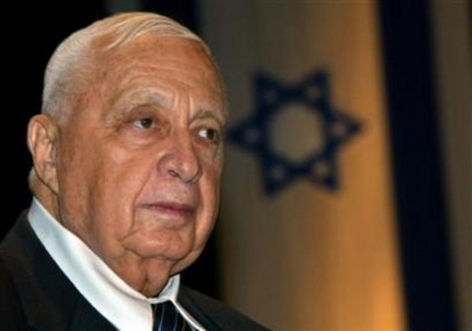LONG SPOON DIPLOMACY?
Thomas Friedman makes an interesting if impractical argument in his column today:
There is an old proverb that says, “If you’re going to sup with the devil, use a long spoon.” Does the White House pantry have any long spoons? I ask because if President Bush really wants to achieve his objectives in Iraq, he may have to sup a little with Yasir Arafat, the Iranian leader Ali Khamenei and Syria’s president, Bashar al-Assad.
First, let me state my own bias: Iraq is the whole ballgame. If we can produce a reasonably decent, constitutionally grounded Iraqi government, good things will happen all around the Middle East. If Iraq turns into a quagmire, it will be a disaster for U.S. interests all around the world. So, for me, everything should be focused on getting Iraq on the right path.
Which is why we may need to let some of the Axis of Evil out on parole — or at least out on work-release. We can’t allow the Israeli-Palestinian conflict to spread into a Israeli-Syrian-Shiite-Hezbollah conflict. It would greatly complicate the ability of Iraqis to work openly with us and would greatly enhance the ability of anti-U.S. forces in Iraq to mobilize militants.
***
The Bush team’s tough-minded approach to all of these bad actors has gotten their attention. Hats off. But now it has to decide whether U.S. interests can best be served by trying to take them all down at once, which the U.S. public has no energy for and which would clearly hamper us in Iraq, or by trying to engage them — with a long spoon — to maximize the chances of success in Iraq.
Trying to remake Iraq is hard enough — trying to do it with the opposition of all the neighbors would be even harder. And most important, a liberalized Iraq would be the greatest long-term force for change in Iran and Syria. I don’t see what we have to lose by trying, but I sure know what we have to win.
While I agree with the premise here, I don’t see how this can work. Iraq isn’t “the whole ball game,” even though it’s the most important facet. The Administration picked Iraq to target because it was the most low-risk, high-reward option available. Now that we’re there, failure is clearly not an option. And winning there may indeed be enough to allow us to solve Iran, North Korea, and Syria through diplomatic means.
But the Israel-Palestinian conflict is also a huge problem–and not entirely within the purview of U.S. policy. We can’t simply order Israel to play nice-nice with people that are murdering their civilian population. Friedman’s suggestion is just the “Road Map” with a new Prime Minister:
I have enormous sympathy for Israel’s predicament in confronting the madness of suicide bombers. No society has ever faced such a thing. But every military strategy Ariel Sharon has tried has failed. Maybe the only way Israel can deal with this phenomenon is by trying anew to do business with Mr. Arafat — indirectly, through his new prime minister, Ahmed Qurei.
Here’s the logic: Israel says Mr. Arafat is totally irrelevant as a negotiating partner and totally responsible for all Palestinian terrorism. But Israel keeps him totally powerless under house arrest, and the Bush team says Israel can’t kill or deport him. Israel has the worst of all worlds: it’s getting nothing for keeping Mr. Arafat locked up — except the inability to get any other Palestinian figure to work with Israel, because Mr. Arafat still holds the legitimacy.
The former Mideast envoy Dennis Ross has a useful suggestion: Israel should try to strike a deal with Mr. Qurei. Offer to give him what he needs: “a two-way ticket” for Mr. Arafat (so he can come and go without fear of deportation).
In return, Mr. Arafat would have to give Mr. Qurei “carte blanche,” Mr. Ross says, to crack down on Islamic terrorists in exchange for Israel’s easing up on Palestinians. I know there are no simple solutions or sure things here, but to not explore every alternative, again and again, is to invite total despair. Moreover, the best way to create an alternative to Mr. Arafat is to strengthen Mr. Qurei.
The Ross-Friedman is identical to the policy of the last several months, with “Qurei” substituted for “Abbas.” Why it would work this time around is unclear–and the risk of giving Qurei a shot is awfully high. I agree that the military option hasn’t worked for the Israelis, but neither has diplomacy. The problem with the Sharon approach is that it has been the worst of both worlds: too little diplomacy and too little force. I’m not sure that a full-on war against Hamas and its supporters isn’t the best option at this point. It’s much easier to conduct diplomacy from a position of strength than from weakness. And it has the virtue of not rewarding terrorists by giving them what they want–and thus inviting more of the same.





